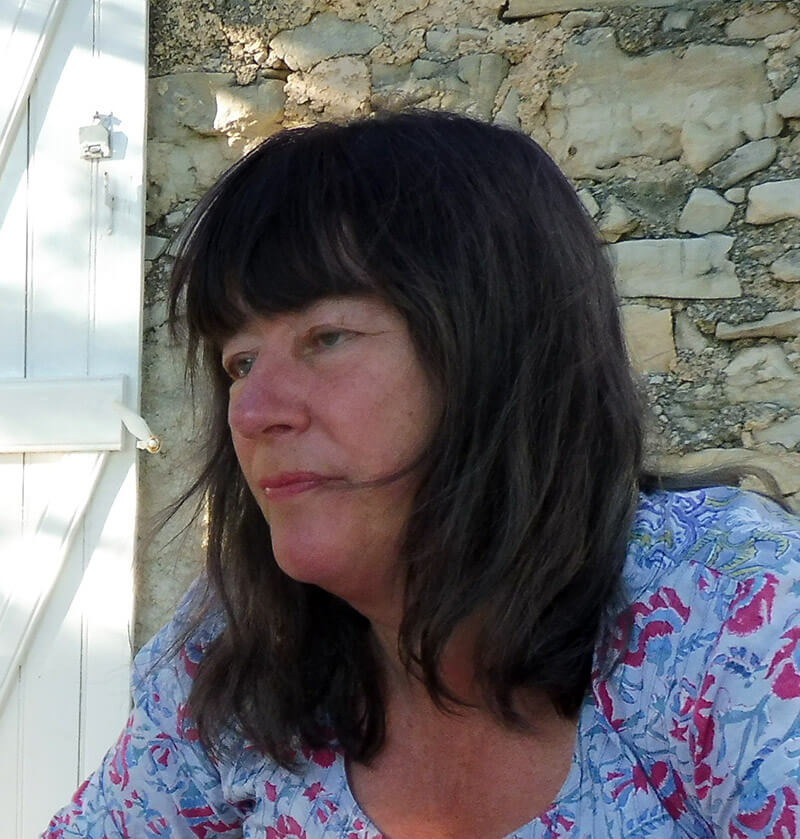
Clem Henricson was born in 1950 in the small North Swedish garrison town of Sollefteå. Her father was an officer in the Swedish army, while her mother spread the word of Anglicised culture across post war Europe on behalf of the British Council. They met, married and lived in this remote Chekhovian spot with dark long winters and brief brilliant summers. The marriage was short lived with much toing and froing between Sweden and England in a tussle of emotions. For the daughter it was the start of an itinerant life across the choppy, exhilarating, sea sick laden waves of the North Sea – straddling families, hostilities and ways of living; the North Sea became one of the major influences of her life. Divorce and the mother’s swift remarriage followed, and at the age of eight the daughter began life in a rural haven with a lake and boat on a Herefordshire country estate – with long summer visits to another world of wooden huts by the Swedish sea. She travelled blissfully alone and free between the ports of Tilbury and Gothenburg on the old creaky Swedish Lloyd ships. Life was idyllic with a melancholic thread. Her schooling from eight to 18 was at Monmouth School for Girls – a structured establishment, and yet in her case tolerant of contrariness and radicalism.
At eighteen she left Herefordshire for London University to read history where the lights and hitherto denied access to men dazzled. She married a fellow student Bill Bell, an academic and advocate of children’s rights, and they had twin sons Olaf and Torsten, one of whom works with the Foreign Office and the other with an economics charity. She has half siblings in Sweden and the UK – a complicated domestic scene with parental passions enacted in high drama.
After studying history at University College London, Clem Henricson trained as a lawyer, undertook legal research and engaged in radical politics and the promotion of human rights. She headed a police committee to counter human rights’ violations and enhance accountability, establishing a range of innovative mechanisms including spot checks by lay visitors to police stations, mediations services and police community consultative bodies.
Clem Henricson turned to social policy in an era of Conservative government when the strongest received argument for preserving welfare provision was its function in preventing crime. She pursued preventative policies advising think tanks, government departments, local authorities and the Labour government in waiting. She subsequently developed strategic planning with New Labour between 2000 and 2010 as Director of Research and Policy at its brain child the National Family and Parenting Institute.Undertaking studies across government departments, she led a multidisciplinary academic team of developmental and social psychologists, and cultural and social policy analysts, producing a model for the future of public policy as it affects families.
Clem Henricson has served on international government and academic advisory committees, including most recently the European Union Advisory Group on Family Research and Policy – the Family Platform and the Council of Europe Committee on Family Policy as an expert adviser. She has worked jointly with the Treasury, the Department of Health, the Home Office , Department for Education, the Social Care Institute of Excellence, the Economic and Social Research Council, the Esmee Fairbairn, Gulbenkian and Joseph Rowntree foundations and the universities of Cambridge, East Anglia, Edinburgh, Leeds, Leicester, London, Manchester, ‘Open’, Oxford and Stirling. She is a member of the Oxford Centre on Parenting and Children, Honorary Senior Fellow at the University of East Anglia and a Fellow of the Royal Society of Arts. As a social policy analyst she has published and broadcast widely on the relationship between the individual and the state.
